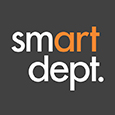What are the best (and worst) questions to ask during an interview?
An important part of preparing for an interview is thinking through (and writing down) questions for your interviewers. While there is such a thing as asking too many questions, coming in with a short list of smart questions will go a long way to both understand the role and impress the hiring manager. It’s always best to focus on the role, the team and company – not the vacation package.
Great questions:
- What are the biggest professional challenges that the person in this role is likely to encounter?
- What are your long term goals for this role and department?
- How is the team structured?
- How closely will I work with a supervisor or mentor?
- What types of employee tend to succeed here? OR – What qualities are most important for success in this role?
- Are there opportunities to take on new projects and challenges that may fall out of the actual job responsibilities?
- Is there any experience you’re looking for that I haven’t yet spoken to?
- What are the next steps/best way to follow up after our meeting?
Avoid asking:
- How long will it take for a promotion? (You seem like you’re only interested in climbing the ladder, not focused on being successful in the current opportunity)
- How long until I can take vacation? (Wait until offer stage or a conversation with HR to ask about benefits, PTO, etc.)
- How soon can I apply for another job here? (Don’t jump ship so quickly! Stay focused on the one position.)
- How much PTO do I get? (You shouldn’t be planning your vacation before you even get the job.)
- Flexible Schedule or special privileges (Save these for when you actually have an offer.)
- Anything generic – So…. What do you like about working in X industry? (Really, how is this helping you evaluate the job?)







